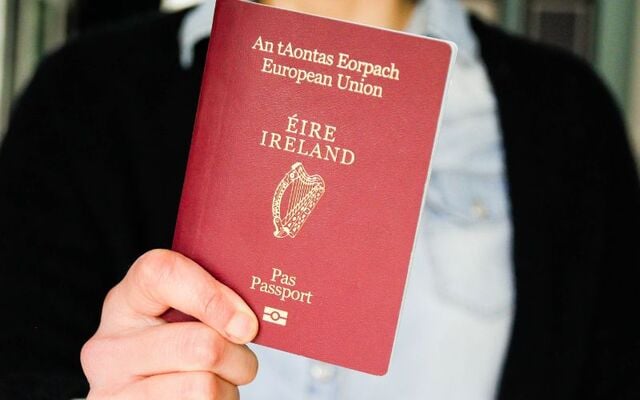Ireland's Minister for Justice Jim O’Callaghan this week signed an order to recommence legislation allowing for naturalized Irish citizenship to be revoked in serious cases.
The Department of Justice said on Thursday, April 10 that the Minister "is empowered to revoke Irish citizenship granted by naturalization under Section 19 of the Irish Nationality and Citizenship Act 1956 (as amended)."
This function, the Department noted on Thursday, could not be operated for some time as the Supreme Court ruled in 2021 in Damache v Minister for Justice that the revocation procedure under section 19 was unconstitutional.
Changes made by the Court, Civil Law, Criminal Law and Superannuation (Miscellaneous Provisions) Act 2024 made the necessary amendments and addressed the issues raised in the Supreme Court judgment.
The signing this week of the commencement order by Minister O’Callaghan reestablishes the revocation process effective from April 7, 2025.
"The signing of this order reestablishes the important and necessary power to revoke naturalized Irish citizenship," Minister O’Callaghan said in a statement on Thursday.
"Where citizenship has been obtained fraudulently or when an individual poses a serious risk or threat to the State, it is essential that the power to remove the citizenship which has been granted to them is there. The order is not designed to disadvantage or be punitive against naturalized Irish citizens.
"It does, however, provide repercussions and remedy when citizenship is acquired by fraudulent means, or when a person poses a serious threat to our society.
"Revocation of Irish citizenship is only undertaken in the most serious of circumstances and I am aware that the loss of citizenship has serious consequences.”
The Department of Justice noted on Thursday: "Under the new procedure, where the Minister for Justice decides to revoke citizenship, an individual will be able to access a Committee of Inquiry and the decision-making process of this committee will operate independently of the Minister. The Committee can affirm or reject the decision of the Minister."
The ability for citizenship to be revoked by the Minister has existed since 1956, the Department said, adding that it "has only been undertaken in the most serious of circumstances."
A commencement order reestablishing the revocation process, allowing for naturalised Irish citizenship to be revoked in serious cases was signed this week by @OCallaghanJim. The order came into effect on 7 April 2025.
Read more: https://t.co/uIRUtLAezj pic.twitter.com/ubWJS3Houa
— Department of Justice (@DeptJusticeIRL) April 10, 2025
"Tiered citizenship"
Responding on Thursday, the Irish Human Rights and Equality Commission (IHREC) said that it "regrets" the decision of Minister O’Callaghan to sign an order to commence legislation, adding that the "new provisions are unlikely to withstand constitutional scrutiny in all cases."
The Commission said it is "concerned that the legislation, as commenced, has the potential to empower any Minister for Justice to use revocation of naturalised citizenship in inappropriate or disproportionate circumstances."
Chief Commissioner Liam Herrick said: “Any legal framework for revoking Irish citizenship must be grounded in principles of proportionality and fair procedures, particularly for our fellow citizens who are Irish by naturalisation.
"Unfortunately, this law does not meet these standards.”
Commission voices grave concerns as Minister O’Callaghan commences law on revocation of naturalised Irish citizenship https://t.co/Gkco7nwu83
— Irish Human Rights & Equality Commission (@_IHREC) April 10, 2025
Similarly, the Irish Council for Civil Liberties (ICCL) wrote to Senators and then-Minister for Justice Helen McEntee last July, outlining its concerns, including that the proposed legislation would create a "tiered form of citizenship."




Comments